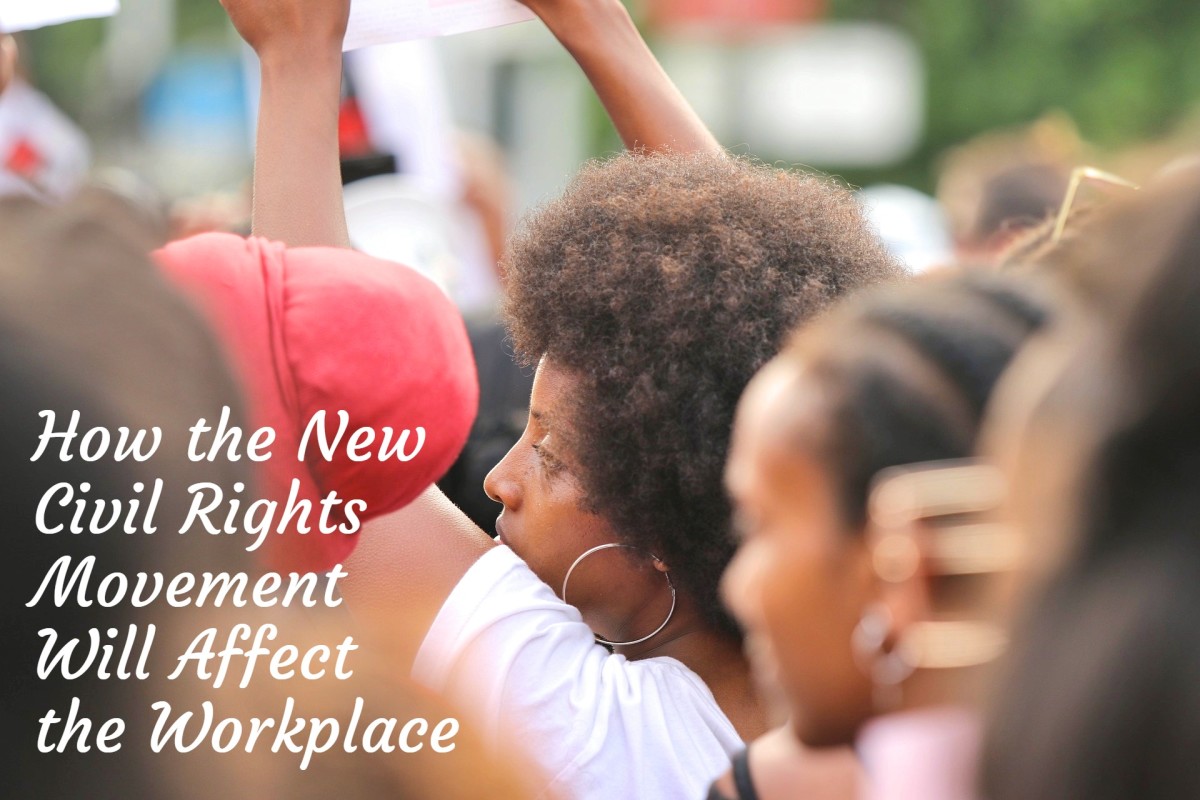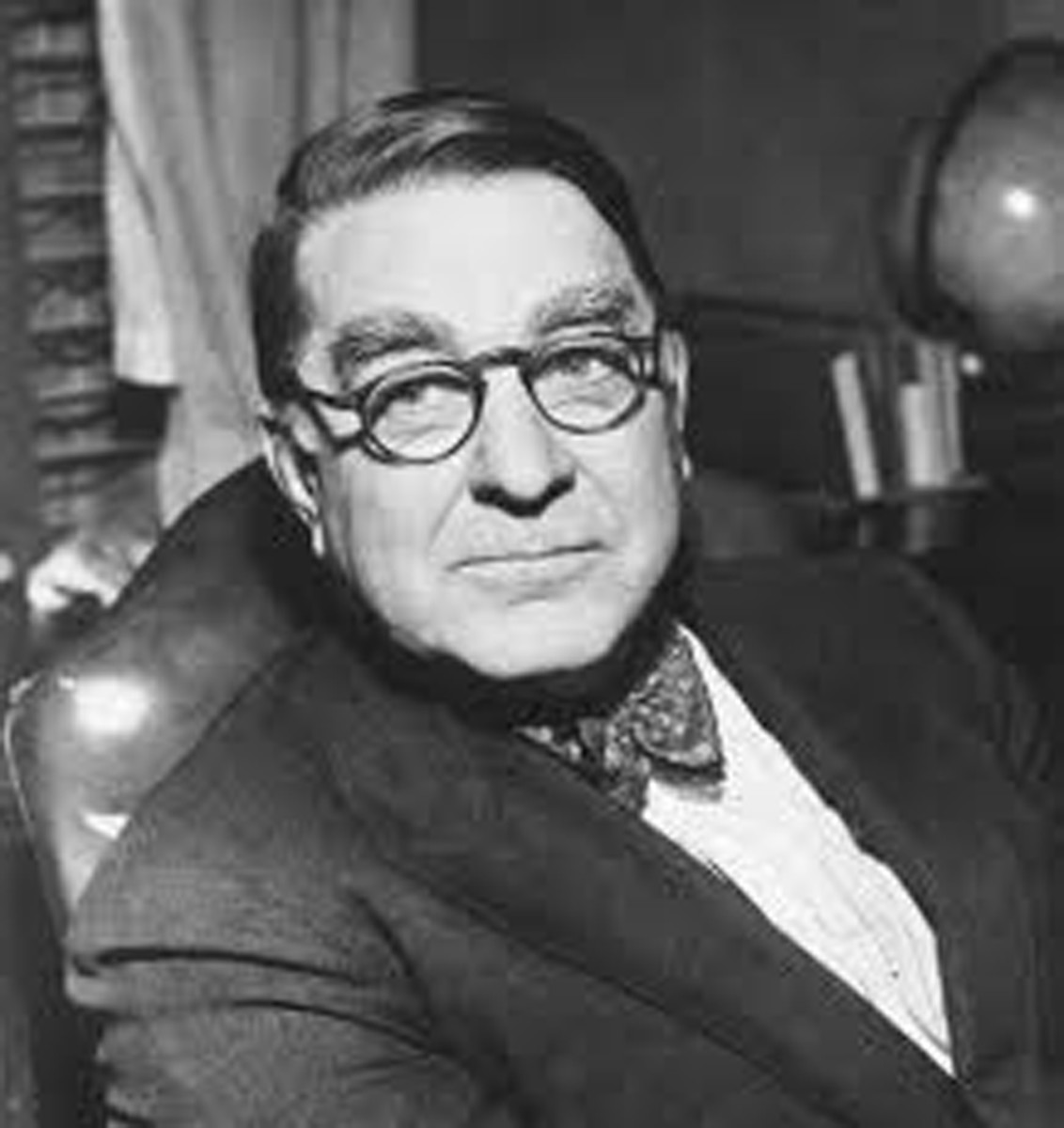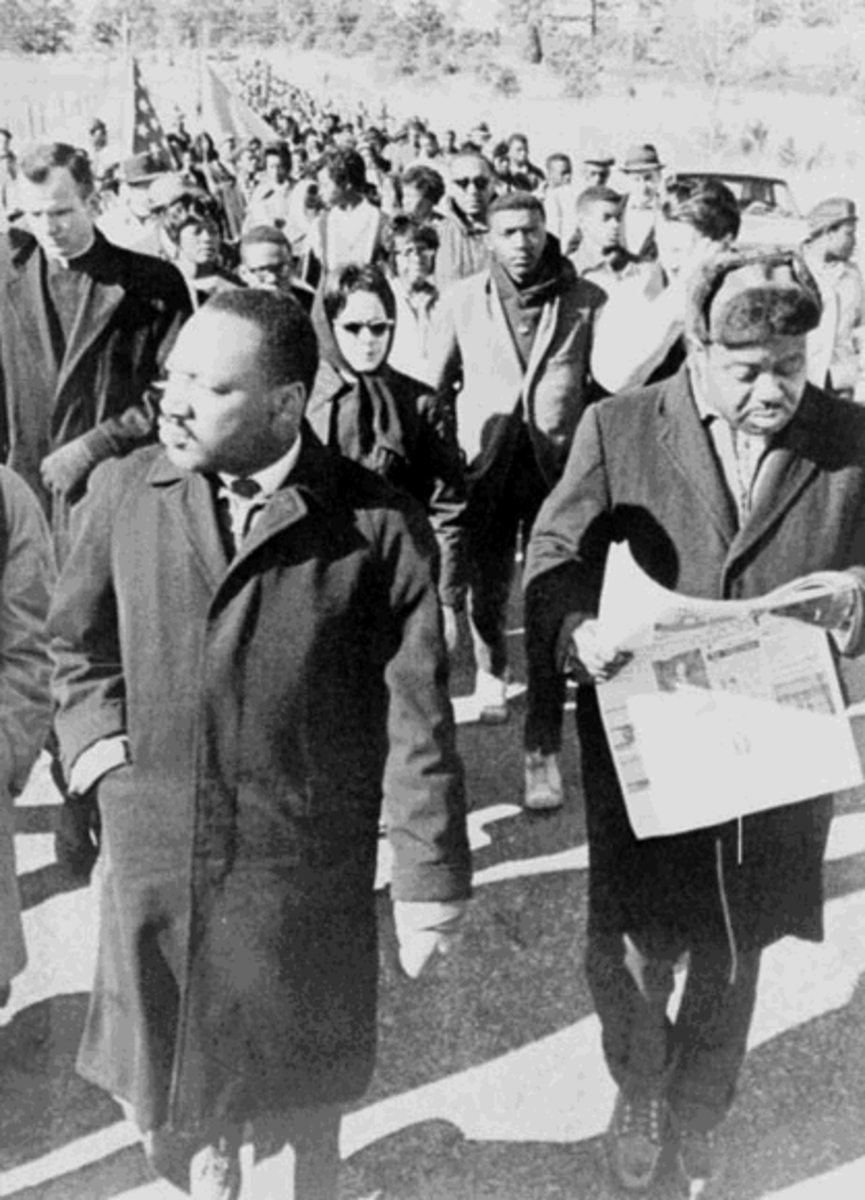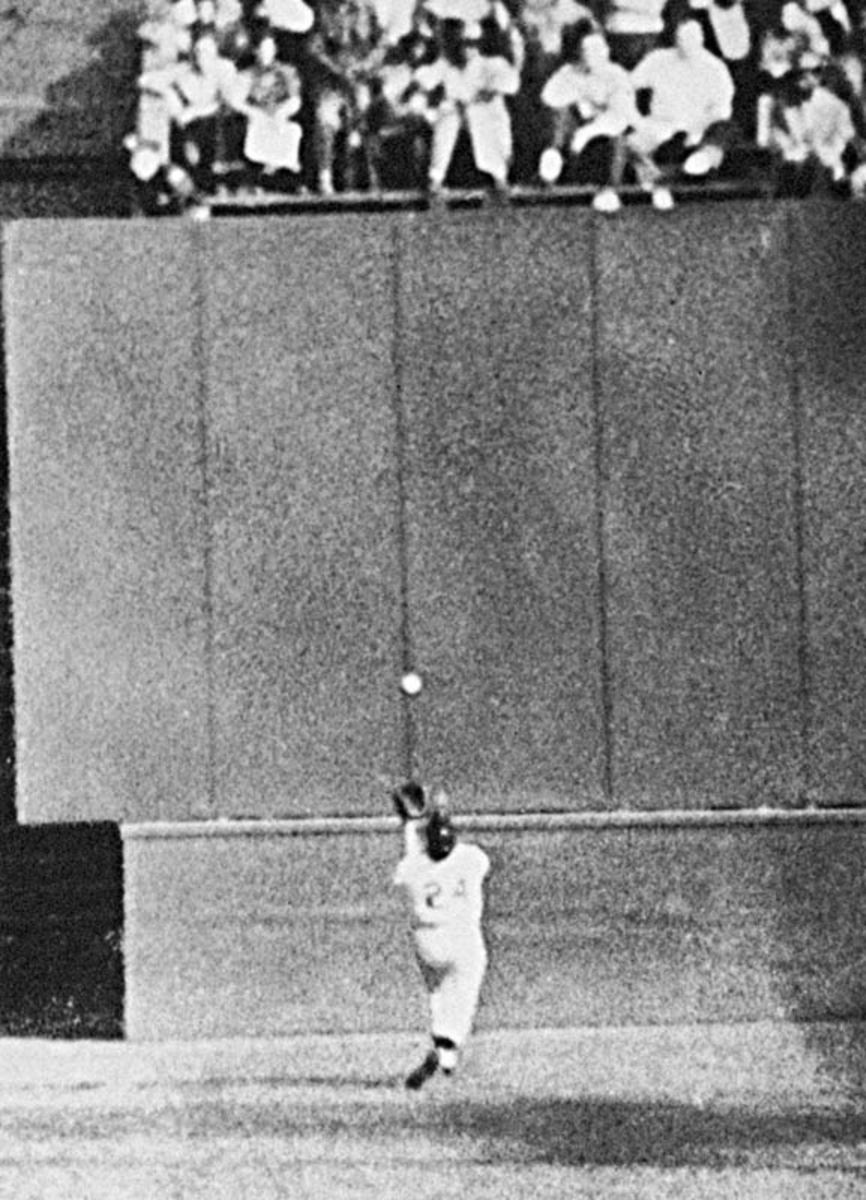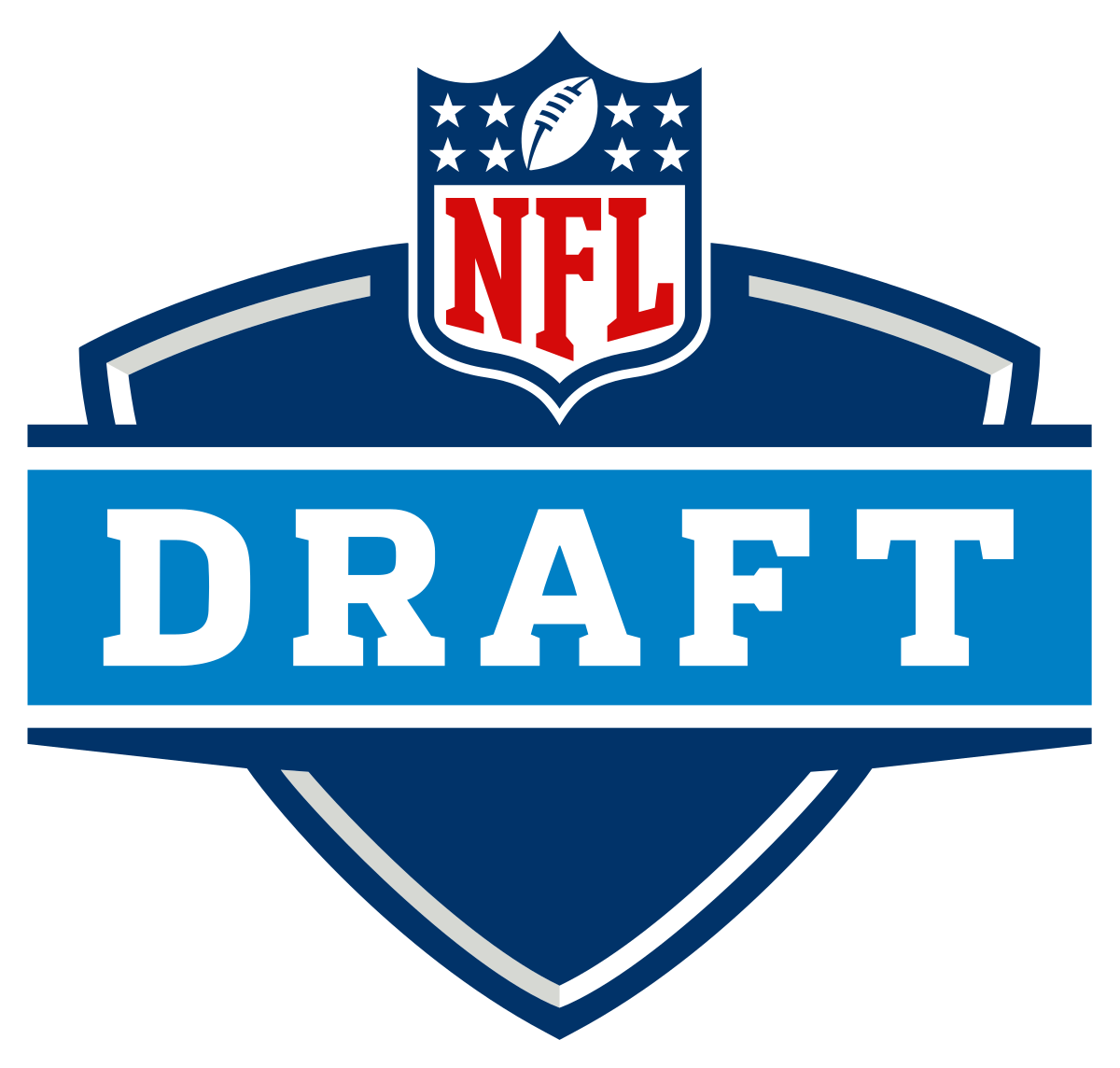THE TIES THAT BIND: The civil rights movement through sports Part 1
As i began my research into this story, I realize there are two things that probably set the wheels in motion for the civil rights movement.The first thing to happen was World War II. Black and white Americans, were leaving their families to kill Nazi's and destroy Adolph Hitler, who believed that the pure blood Aryans were a super race. Hitler's ideology demanded the extermination of all those he felt were inferior, including Jews, blacks, homosexuals and gypsies. This is the same Hitler who just a couple of years earlier, had felt the sting of embarrassment at the 1936 summer Olympic games in Berlin. American track star Jessie Owens would go on to win gold medals in the 100 meters, the 200 meters, the long jump and the relay race. Hitler refused to acknowledge Jessie, turning his back to the crowd during the medal ceremonies. The black track star would return to the United States a hero. Americans both black and white were insulted by Hitler's behavior. Many Americans would die trying to demolish these Nazi racist ideas in Europe. Meanwhile the nation was killing herself from within because of her own struggles with racism at home.
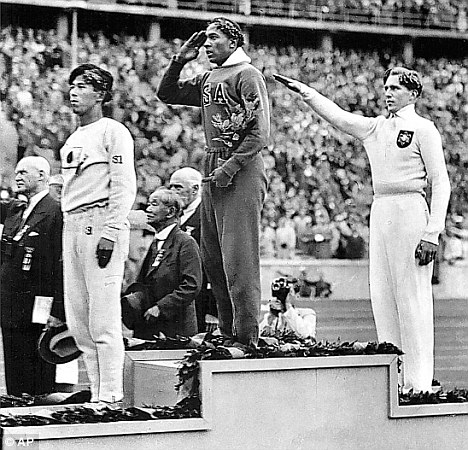
The second thing to happen, that brought about such change, was the signing of Jackie Robinson to the Brooklyn Dodgers. Jackie was a true pioneer and the spark that lit the fuse for the civil rights movement. Robinson was a cultured, educated man who graduated from U.C.L.A. He was the first athlete in school history to win varsity letters in four sports: baseball, basketball, football and track. Jack came from an incredible sports family. His brother Mac placed third in the same 200 meter race that Jessie Owens had won in the summer of 1936 at the Berlin Olympic games. Jessie returned a hero, while Mac found a job as a janitor at a Georgia high school. Jackie vowed to never allow that to happen to him.
After the empire of Japan's sneak attack of Pearl Harbor on December 7, 1941, Jackie was drafted and assigned to a segregated army cavalry unit. Having the proper qualifications, he and several other black soldiers, including boxing's heavyweight champion Joe Louis, applied for officer candidate school. The two athletes would form a bond and friendship that would last a lifetime, after being accepted into the school together.
By now, most Americans know about the Rosa Parks story, from their days in elementary school. However, eleven years earlier Jackie faced a similar problem in Fort Hood,Texas. The year was 1944, he boarded an army bus with a fellow officer's wife. The bus driver ordered Robinson to move to the back of the bus. Second Lieutenant Jackie Robinson refused. When the driver finished his route, he summoned the military police, who then took Jack into custody.
The fiery Robinson questioned investigators about their racist tactics and questioning. The army decided to court martial the young officer on bogus trumped up charges including public drunkenness even though he didn't drink. Little by little the charges would be reduced, and he would finally be acquitted of all charges, by a panel of nine white officers.
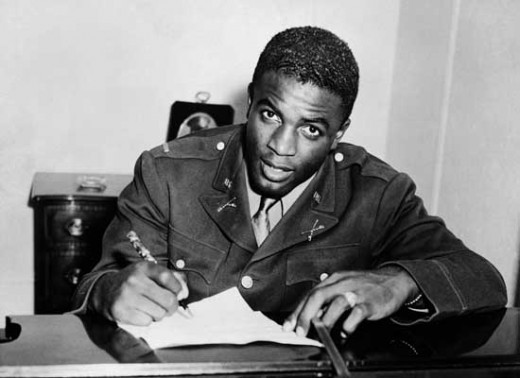
On August 28, 1945, Brooklyn Dodgers owner, Branch Rickey and Jackie had a secret meeting. The Dodgers were hoping to shatter baseball's color line. Due to a gentleman's agreement, baseball owners had conspired to keep deserving black ball players out of the Major Leagues. Branch Rickey had designs on dipping into the Negro Leagues, and procuring the best talent for his ball club.
Even though players such as Satchel Paige and Josh Gibson had star power, and were arguably better than Jackie. Mr. Rickey was looking for a man with character and integrity. He knew the first black ball player would be scrutinized and held under a microscope for the whole skeptical country to see. He needed the perfect player who could stand up and turn the other cheek, from what he knew would be harsh treatment from fans and players alike. This had to have flew in the face of everything that the brash and hot tempered Jackie was all about. A confused Robinson asked, "Mr. Rickey, don't you want a player who isn't afraid to fight back?" The owner said "I need a player with the courage not to fight back
Between Branch Rickey's vision and Jackie's courage, a partnership was forged. October 23, 1945, America was shocked by the public announcement that Jackie Robinson had signed with the Brooklyn Dodgers and would soon be testing his skills on the Major League level. A shell shocked Jackie asked the owner," Why are you doing this?" To which Rickey replied," Jack, i'm a baseball man. I want to win the pennant!"
After spending a year playing in Montreal, for the Dodgers farm system, Jackie made his debut. The fans, opposing players and even some teammates treated Jack horribly. Jack kept his promise with Mr. Rickey that no matter what happened, he would not respond back for three years. Through all the abuse that would rain down on Robinson, he remained disciplined and concentrated on playing ball. And boy did he ever play ball. He would go on to dominate his era, winning many awards and even leading the Dodgers to a world championship, finally beating the hated New York Yankees in 1955. His combination of speed, intelligence and power was so unique in the game, that other baseball owners began searching for the next great black ball player. Jackie changed the face of the game forever, and he gave African Americans a sense of empowerment. Many Americans, both black and white, took notice and began to question the silly "Jim Crow laws" that said blacks were second class citizens and were not to be afforded the rights of "normal" people.
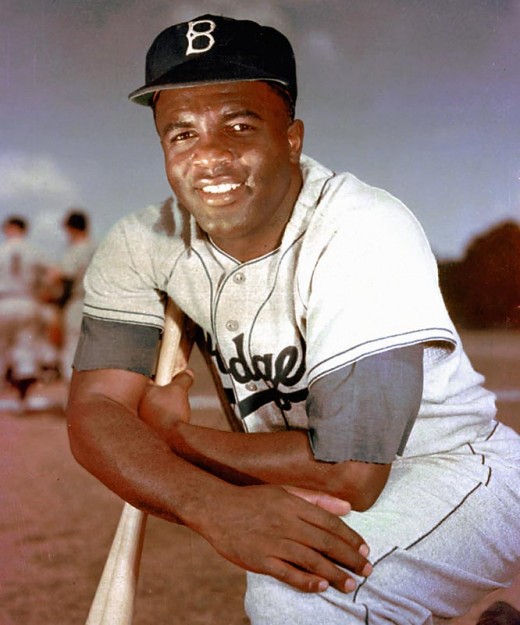
As great as Jackie's play on the diamond was, his tireless efforts for equality off the field are just as impressive. In 1953, he and old friend Joe Louis began to openly question golf course segregation, and criticized segregated restaurants and hotels. Many of these businesses integrated as a result. From 1957-1964, he was the Vice President of personnel at Chock Full O' Nuts, becoming the first black to hold that title at a major corporation. In 1964, he and Harlem businessman Dunbar McLauren founded Freedom National Bank. He served in the black owned and operated bank as the first Chairman of the Board. One of Jack's dream in life was to see a Major League baseball team hire a black manager. Unfortunately the dream would be realized posthumously. Two years after his death, the Cleveland Indians became the first club to do so, when they hired former Baltimore Orioles slugger Frank Robinson to be a player manager for the team.
On April 15, 1997 Jackie's uniform number 42 was retired throughout all of Major League baseball. Because of a grandfather clause that Commissioner Bud Selig instituted for the players that were already wearing the number, current New York Yankees relief pitcher Mariano Rivera will be the last player to ever wear the number.
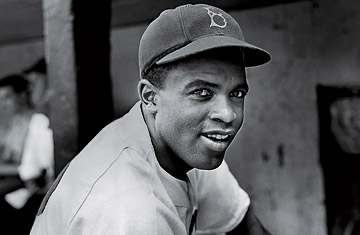
Black soldiers returning from the War, were disgusted by the fact that they had put their lives on the line to defeat tyranny and bigotry in Europe, only to find themselves and their families struggling to find equity at home. Jackie's incredible journey had opened the eyes, and the imagination of the black community. From city to city and state to state, the civil rights machine was beginning to hum. There was no going back now. Jackie gave people the courage to seek change in a diluted world. The movement wasn't in full swing yet. It was more like a tsunami that was slowly building up energy and ferocity. All across the nation, people were beginning to question authority. The sports world, which has always been a reflection of our American society, was no different.
Part two of this three part story will be about a boxer out of Louisville who will stand up to the United States government during a tumultuous time in the country's history. A gentleman and a scholar, that will infiltrate the lily white world of professional tennis, while seeking equality at home and abroad. As well as two young men, who in the 1968 Olympic games, would almost turn the world upside down, with their brazen protest against racism and discrimination.

